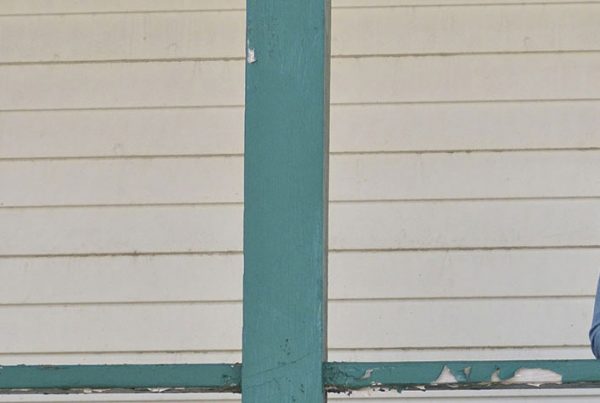I used to think of my sin as a single thread of yarn woven into my heart. If I could just pinpoint the thread and grab hold of its end, I could pull it right out. Like a loose string on the hem of my dress.
Over time I have come to see my sin differently. Now, I see my sin not as a single thread, but as a tangled knot. As soon I tug on one thread, I realize it’s tied to another. And the more I try to detangle them, the more knotted they all become.
The human heart is complex, and I’m learning the importance of acknowledging that complexity. Otherwise, I slip into overly simplistic categories of self-understanding that are both unhelpful and misleading.
You see, whenever I experience pain or heartache, I vacillate between two opposing interpretations:
1. It’s all my fault–“I brought this upon myself”, or “I’m being too insecure”, or “this is the result of my own inability to trust God”.
2. It’s not my fault at all–“Somebody did this to me”, or “somebody else is to blame”, or “I am the victim of circumstances outside my control”.
Of course, there are times when my pain is definitively not my fault. There are times when I am a victim, and it would be wrong to blame myself.
There are also times when I am solely to blame for my misfortune. I alone have brought disaster upon myself with my own foolishness and sin.
But most of the time, for me anyway, it’s both. More often than not, there isn’t one single thread, or one single reason for my pain. Usually, it’s a mix of things:
I am in pain from colliding with a broken world, and I am in pain because I have neglected my soul.
My parents and I talked about this a lot when I was growing up. Following the careless actions of a friend, I often found myself devastated. Perhaps I was excluded from an event, or my friends forgot my birthday, or I was betrayed in a significant way. Those are all crummy experiences.
But my reaction–the degree to which I was crushed–it revealed something about my heart. It uncovered on idol.
As a kid, my parents would tell me I had “unrealistic expectations” of my friends. And I think that was true. But on a deeper level, I was also looking for my friends to give me value. I had given them a place in my heart that only God should have. So the rejection was much more than a surface wound–it was a reflection of my worth.
In those messy situations–a conflict with a friend, a fight with a spouse, criticism from a peer–it’s easy to gravitate toward one of those two interpretations: either it’s all their fault, or it’s all my fault.
Here’s the problem with that either/or approach. When the blame is entirely outward, it excuses any personal work. It frees us from asking self-reflective questions about personal sin, or places of needed growth. One of the worst expressions of this is the premature claim of “spiritual attack”. It’s not that spiritual attack isn’t real, but when conflict is framed solely in those terms, we don’t have to search ourselves at all.
On the other hand, taking ALL the blame is equally unhealthy. When the blame is entirely inward, there is no room for grace. There is no place for naming the wrong against you and acknowledging the brokenness of this world–a brokenness that is largely outside of your control.
One perspective has a cheap grace about it. The other has no grace at all.
That’s why we need both. We need a theology that can hold innocence and responsibility in the same hand. They are not contractions, but two sides of the same gospel coin.
Psalm 139: 23-24 reads,
Search me, God, and know my heart;
test me and know my anxious thoughts.
See if there is any offensive way in me,
and lead me in the way everlasting.
Notice the nuance of this prayer. The Psalmist is asking God to search out his anxieties, his cares, and his fears, but also his sins. Both reside in his heart, side by side, equally reflecting reality. The Psalmist is both innocent and responsible. Both victim and perpetrator. And one does not negate the other.
So, the question I have for you is this: which category do you gravitate toward? Are you prone to place blame outward? Or do you take all the blame yourself?
Whichever way you swing, consider whether it is the whole truth. If you have trusted friends, or a supportive spouse, ask them to help you process your pain in a truthful way, in the way everlasting.
Because some of us miss the grace, while some of us miss the growth. In Christ, we can have both.
Sharon
Sharon








This is great, Sharon! I completely agree that it’s so easy to entirely take one interpretation or the other, and it’s so hard to do both! We are both innocent and responsible. Praying that God can shape my heart to see both sides
I am not a yarn person. Not at all. But similar thoughts have been crossing my mind as I fight a battle against Bermuda grass in my yard. I used to think of sin as something with one root: get a good grip, and out it comes. But I think sin is more like Bermuda grass: it has a rhizome that runs parallel to the surface, deep under ground… And it grows FAST. Unless you get to the root, every node sends a shoot up: sprouting green here and there, relentlessly taking up the area where I hope more fruitful things will grow. The more I weed Bermuda grass, the more I realize the depth of the sin in me, and what a poor (and superficial) job I have done of digging for the deeper roots of endemic sin.